John Preskill has been guiding the growing quantum computing industry for decades, and now he has set a new challenge – to build a device capable of a million quantum operations per second, or a megaquop.
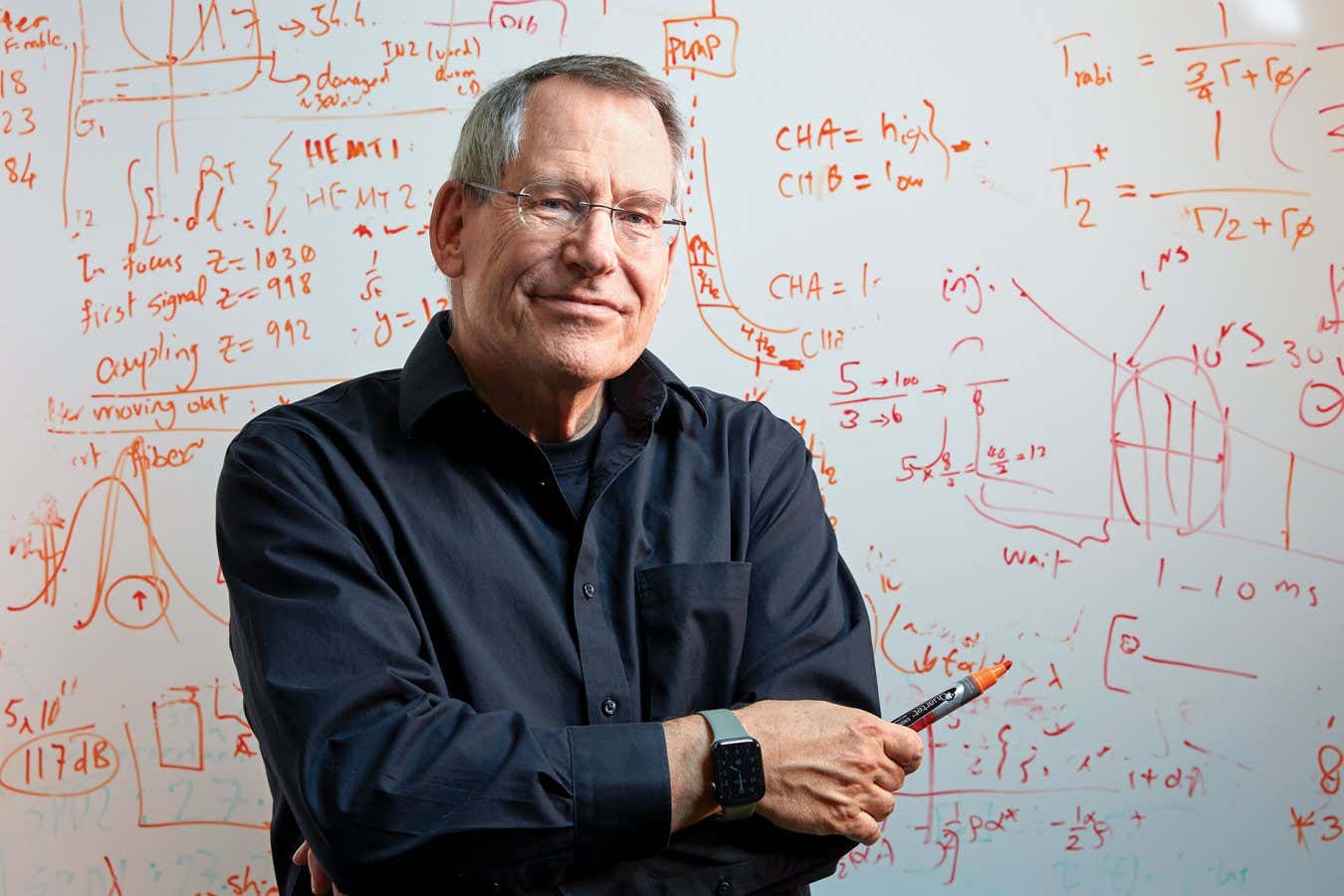

John Preskill has been guiding the growing quantum computing industry for decades, and now he has set a new challenge – to build a device capable of a million quantum operations per second, or a megaquop.
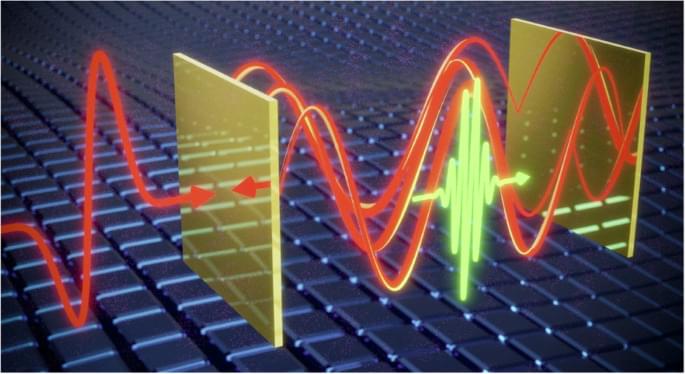
Our hybrid EOC design extends these concepts by providing continuous tunability and the potential for adding active samples for investigations of intra-cavity light-matter interactions. In the ‘empty’ hybrid cavity investigated here, we observe a rich mode structure, spurring development of both a field-based model to quantify these cavity modes and their properties, as well as a complementary coupled-oscillator description to gain further understanding of the delicate interplay between the various sub-cavities, which thereafter constitute the hybrid EOC modes. Our detailed analysis of these theoretical vantage points will be highly valuable when considering the addition of an active material, after which the hybrid cavity optical response will become even more intricate. Integration of active materials into hybrid EOCs will yield novel access to light-matter interactions—namely access to energy exchange on sub-Rabi-cycle timescales, and furthermore local probing and even control over tunable light-matter superposition—the latter two unavailable when viewed by conventional cavity transmission techniques. Potential ‘active materials’ for these in-situ investigations of tunable light-matter interactions include conventional polar semiconductors40—oftentimes displaying very large oscillator strengths—atomically-thin monolayers or heterostructures ofion-metal dichalcogenides41, hybrid organic-inorganic 3D21,42 and 2D lead-halide perovskites43,44, and novel, magnetically-ordered systems45.
Implementation of EO sampling inside of THz cavities will also significantly advance further areas of contemporary research. As a prominent example, field-resolved probing inside a defined electromagnetic cavity will provide novel opportunities for measurements of electromagnetic vacuum field fluctuations46,47. Most notably, a high-quality factor EOC constitutes an advantageous testing ground for measurement of quantum vacuum fluctuations, by efficiently excluding sources of external radiation. Moreover, EOCs are not limited to either macroscopic environments or the THz spectral region. Although EO sampling is routinely employed up to the mid-IR spectral region9, it has recently been extended even into the visible range48, allowing for future broadband measurements of intra-cavity electric fields. Similar sampling techniques have been used to sample electric fields inside of metallic antenna-based cavities49,50, demonstrating that although on-chip photonic implementations lack the dynamic tunability, the general technique is readily implemented in other near-field contexts, including even tip-based nano-photonic applications51. Furthermore, EOCs utilizing quartz are uniquely suited candidates for chiral THz cavity phenomena52, due to quartz’s capability for straightforward and rapid measurement of vectorial electric field trajectories34.
In conclusion, we have established versatile and compact designs for a new class of active THz cavities, which allow for in-situ retrieval of intra-cavity electric fields. By developing a cavity-correction function formalism for these EOCs, we have demonstrated a rigorous and reliable method to extract absolute fields in a quantitative, and phase-resolved manner. Utilizing straightforward fabrication techniques, we tune the cavities’ quality factors and resonance frequencies. Furthermore, we have introduced a hybrid EOC, offering continuously-tunable cavity modes across the entire THz-frequency range, within a single device. This fundamental advancement lays the groundwork for accommodating additional active materials for in-situ measurement of and control over light-matter coupling. We understand the rich hybrid mode structure, including apparent signatures of strong coupling, via cavity-field and coupled-oscillator formalisms, which will be key to deciphering signatures of light-matter coupling in more complicated devices. Therefore, this work opens new dimensions of THz cavity physics, particularly in the realms of cavity-controlled ground-and excited state material properties. This includes possibilities such as cavity-enhanced THz emission, selectively-driven Floquet states53, and cavity-controlled nonlinear THz driving15,54, thus paving the way for comprehensive investigations of THz cavity quantum electrodynamics.

Quantum computers have the potential to revolutionize technology by solving complex calculations and computations that are difficult, if not impossible, for traditional computers. One major roadblock, however, is instability—quantum states can be easily disrupted by “noise” from their surrounding environments, causing errors in the systems. Overcoming instability is important in creating effective and reliable quantum computers and other quantum technologies.
Researchers at the University of Rochester—including John Nichol, an associate professor in the Department of Physics and Astronomy—have taken a key step toward reducing instability in quantum systems, by focusing on an elusive state called a nuclear-spin dark state. Although scientists have long suspected that the nuclear-spin dark state could exist, they haven’t been able to provide direct evidence of it—until now.
“By directly confirming the existence of the dark state and its properties, the findings not only validate decades of theoretical predictions but also open the door to developing more advanced quantum systems,” Nichol says.

Carboxyl-terminus of Hsp70-Interacting Protein (CHIP) is an E3 ubiquitin ligase that marks misfolded substrates for degradation. Hyper-activation of CHIP has been implicated in multiple diseases, including cystic fibrosis and cancer, suggesting that it may be a potential drug target. However, there are few tools available for exploring this possibility. Moreover, the best ways of inhibiting CHIP’s function are not obvious, as this complex protein is composed of a tetratricopeptide repeat (TPR) domain, a U-box domain, and a coiled-coil domain that mediates homodimerization.
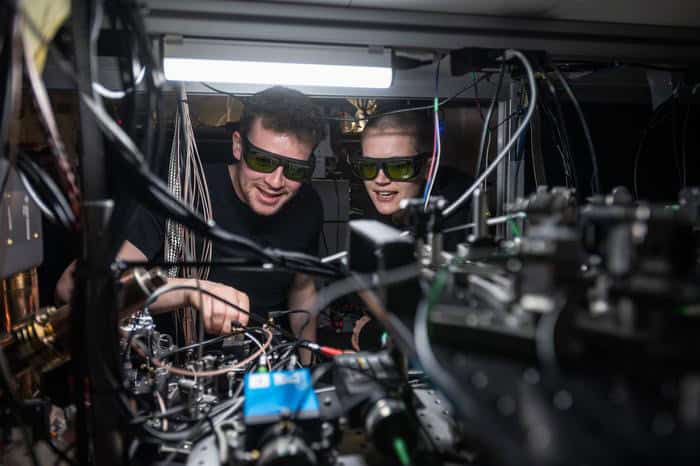

Space and cooling limitations restrict the number of usable qubits. However, researchers believe connecting two qubits in separate dilution refrigerators using an optical fiber is now possible.
“The infrastructure is available, and we can now build the first simple quantum computing networks,” says Arnold.
While the ISTA physicists have made significant progress in developing superconducting quantum hardware, more work is needed. Their prototype has limited performance, especially in terms of optical power. Nevertheless, it proves that a fully optical readout of superconducting qubits is possible, and further advancements will depend on the industry.

Data security on the internet is under threat: in the future, quantum computers could decode even encrypted files sent over the internet in no time. Researchers worldwide are, therefore, experimenting with quantum networks that will enable a paradigm shift in the future when globally connected to form the quantum internet.
Such systems would be able to guarantee tap-proof communication through quantum mechanical phenomena such as superposition and entanglement, as well as cryptographic quantum protocols. However, the quantum internet is still in its infancy: high costs coupled with high energy consumption and a high level of complexity for the necessary technologies have prevented quantum networks from scaling easily.
Two researchers at the Institute of Photonics at the Leibniz University Hannover want to remedy this situation. Using frequency-bin coding, they have developed a novel method for entanglement-based quantum key distribution. This quantum mechanical encryption technique uses different light frequencies, i.e. colors, to encode the respective quantum states. The method increases security and resource efficiency.
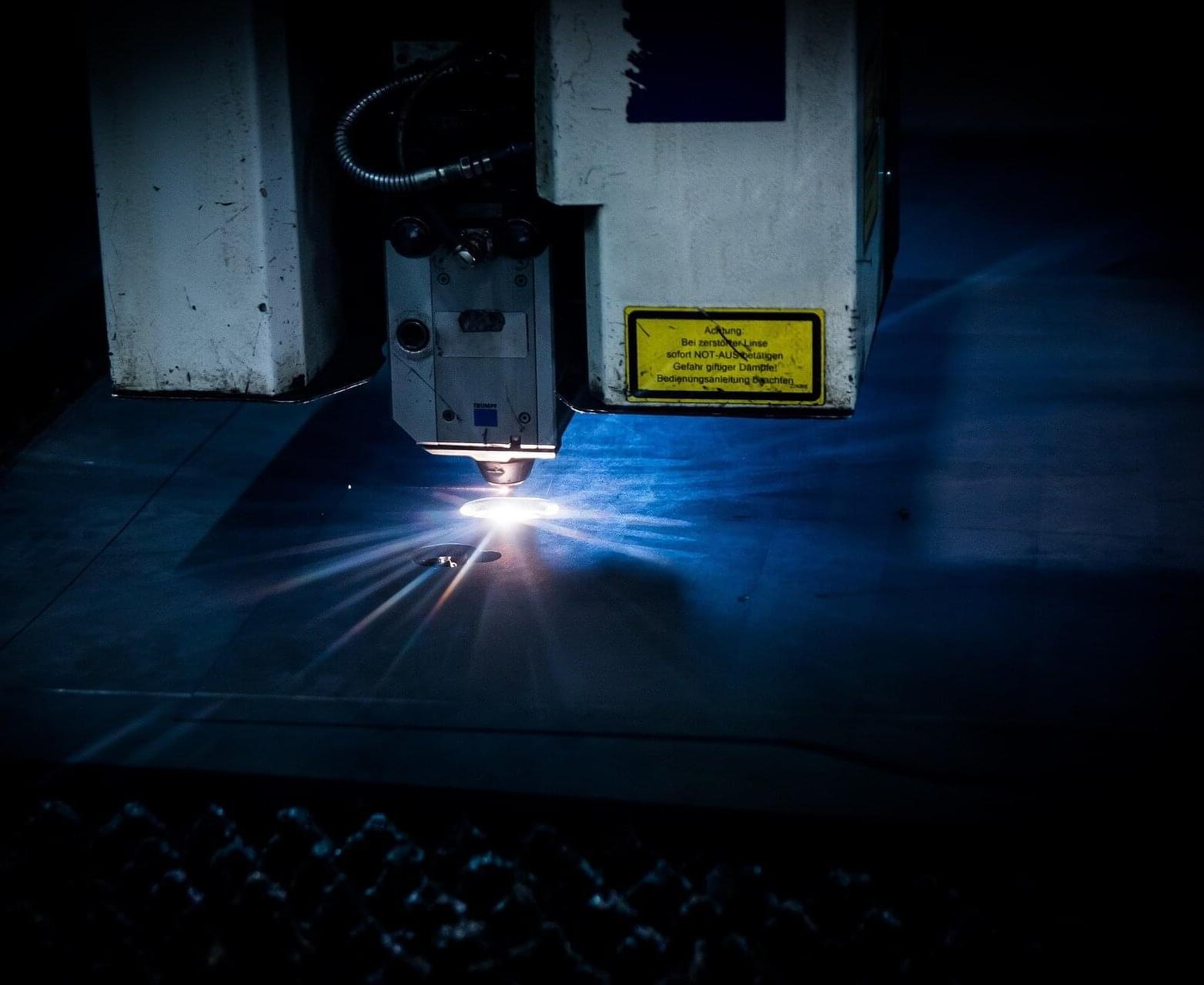
Laser diodes are semiconductors that generate light and amplify it using repeated reflection or “optical feedback.” Once the light has achieved desirable optical gain, laser diodes release it as powerful laser beams.
Photonic crystal surface-emitting lasers (PCSELs) are advanced laser diodes where the optical gain is typically distributed laterally to the propagating light within a photonic crystal (PC) structure. They differ from traditional lasers by separating gain, feedback, and emission functions, offering scalable single-mode power and innovative designs. This leads to enhanced performance and new application possibilities.
In a paper that was published in the IEEE Journal of Selected Topics in Quantum Electronics on 20 November 2024, researchers have developed a method to numerically simulate the interaction of light waves within PCSELs.

In a groundbreaking use of teleportation, critical units of a quantum processor have been successfully spread across multiple computers, proving the potential of distributing quantum modules without compromising on their performance.
While the transfer only took place over a space of two meters (about six feet) in an Oxford University laboratory, the leap was more than enough to emphasize the feasibility of scaling quantum technology by teleporting quantum states across an ‘internet’ of connected systems.
Teleportation is a quirk of physics that only makes sense through a quantum lens, where objects exist in a blur of possible characteristics until processes of measurement force them to adopt each state.
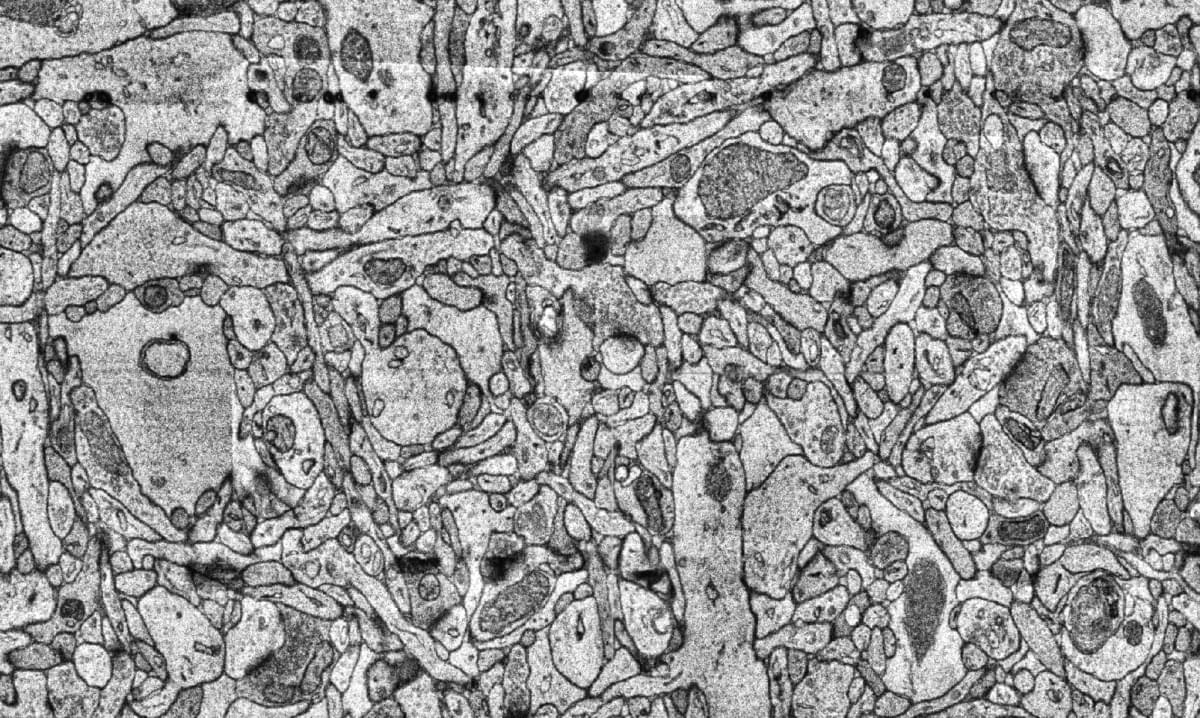
I presented these slides (PDF and images below) during the Workshop on Philosophy and Ethics of Brain Emulation (January 28th-29th, 2025) at the Mimir Center for Long Term Futures Research in Stockholm, Sweden. In my talk, I explored how various biological phenomena beyond standard neuronal electrophysiology may exert noticeable effects on the computations underlying subjective experiences. I emphasized the importance of the large range of timescales that such phenomena operate over (milliseconds to years). If we are to create emulations which think and feel like human beings, we must carefully consider the numerous tunable regulatory mechanisms the brain uses to enhance the complexity of its computational repertoire.